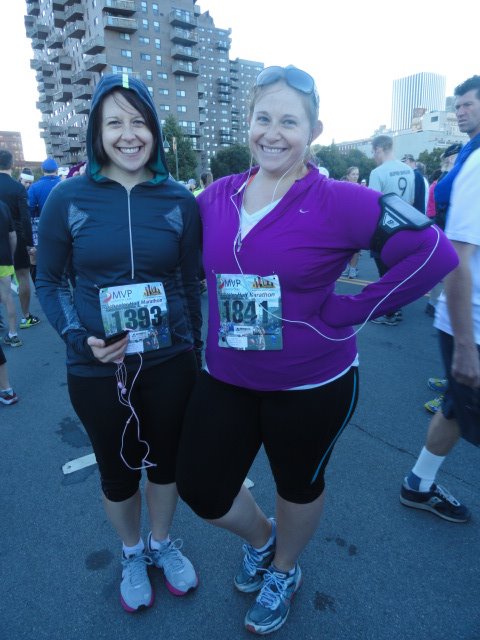During my blogging hiatus I missed two big milestones for me: a) it has officially been two years since I started my weight loss journey (started in May 2011 at 300lbs), and b) it has been one year since I started CrossFit in May 2012 (or February 2012 if you count the two months of bootcamp).
I want to compare where I am to where I started two years ago, but honestly it’s almost impossible because my baseline for everything was pretty much 0. The number of push-ups I have done in my life before May 2011? 0. That’s not a typo – I had never been able to lift my body off the ground in a plank position, ever. My 1 mile time before May 2011? Never ran it start to finish without walking. The number of pull-ups that I had ever completed? 0. You get the idea. How am I supposed to compare where I am now to where I was if I can’t even to a simple percentage, because I can’t divide by 0?
Needless to say, I am a completely different person than who I was two years ago. And even if I can’t necessarily measure my progress with concrete improvements and percentages, I don’t really need to – the differences are pretty evident.
But, one year after CrossFit is a different story.
When I started bootcamp, I had already lost 50 pounds. I ran my first mile (over 3 miles actually) shortly after starting CrossFit. I did my first push ups, and later my first unassisted pull ups, while in a CrossFit class. So, I might talk about it a lot (maybe too much), but obviously it holds a special place in my fitness journey.
So, just some big changes that I’ve seen over the last year and a few months of CrossFit:
- When I started bootcamp and we jumped over a PVC pipe, I had to jump, stop, catch my balance, and then jump. Now when we jump over our barbells I can do them all unbroken and more fluidly
- I constantly finished in last in the class. Now I’ll still finish in last at times, but I’ll also finish in first in the class at times, and usually pretty consistently I’m somewhere in the middle
- I took 2 minutes off my 5K row
- I’ve taken minutes off of my 5K run
- I’ve improved on every benchmark workout we’ve done
- I have increased my strength dramatically – increasing my back squat by 40 pounds, increasing my clean by 40 pounds, and my snatch by 25 pounds
- I have learned how to successfully do double unders, and now can string at least 50 together pretty consistently
- I have climbed a 15 foot rope (I hate heights, so I still don’t do these during WODs, but I can do it if I have time and don’t feel rushed)
So, yes. I might talk about it a lot. And there are lots of other fitness solutions – and CrossFit isn’t the only answer for fitness. But it is the answer for me at this point in my life. And I am very proud of the work I’ve been able to do there, and the gains I’ve made. Could I have made this progress elsewhere? Maybe. But the community and support I get from the other people who go and the trainers are unmatched in anything I’ve ever experienced. And I really attribute their support and guidance for a lot of my progress.
So, happy belated CrossFit-iversary to me! I can’t wait to see what another year there will do!






